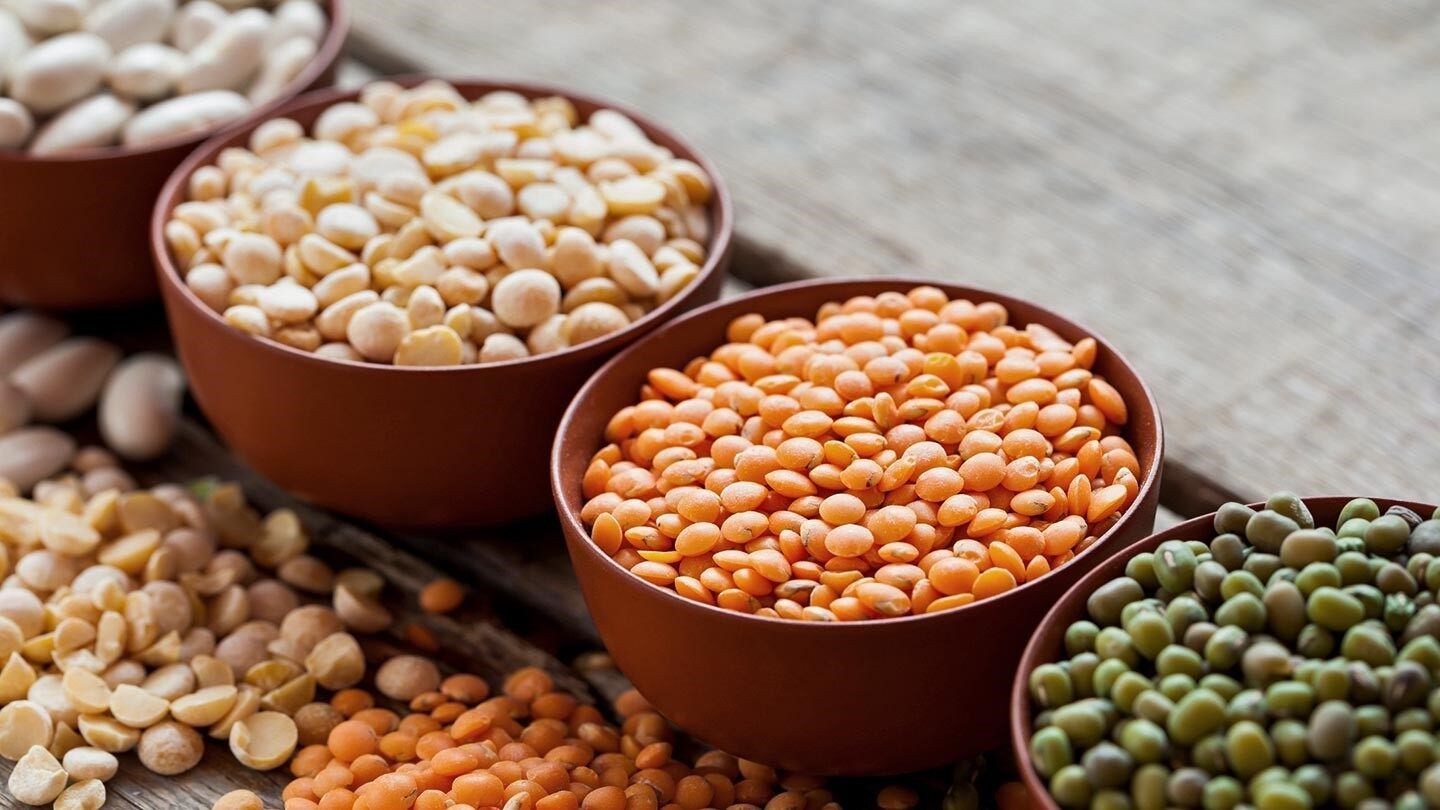What Food Is Bad For Thyroid? Foods.edu.vn unveils the dietary factors impacting thyroid function, offering insights into optimal nutrition for thyroid health and highlighting the role of specific nutrients in thyroid hormone production. Discover how certain eating habits and food choices can hinder your thyroid’s performance, and what alternatives you can embrace for better thyroid health. Dive deeper with information on thyroid-friendly diets, nutritional deficiencies, and endocrine health on FOODS.EDU.VN.
1. Understanding the Thyroid and Its Function
The thyroid, a butterfly-shaped gland located at the base of your neck, plays a vital role in regulating your body’s metabolism, energy levels, and overall health. It produces hormones, primarily thyroxine (T4) and triiodothyronine (T3), which influence nearly every organ in your body. When the thyroid isn’t functioning properly, it can lead to a range of health issues, including hypothyroidism (underactive thyroid) and hyperthyroidism (overactive thyroid).
1.1. The Importance of a Balanced Diet for Thyroid Health
A balanced diet is crucial for maintaining optimal thyroid function. The nutrients you consume provide the building blocks for thyroid hormone production and support the overall health of the thyroid gland. Certain nutrients, such as iodine, selenium, and zinc, are particularly important for thyroid health.
1.2. How Food Choices Impact Thyroid Hormone Production
Certain foods can interfere with thyroid hormone production or absorption, potentially exacerbating thyroid conditions. These foods may contain substances that block the thyroid’s ability to utilize iodine, an essential component of thyroid hormones. Additionally, some foods can interfere with the absorption of thyroid medication, reducing its effectiveness.
2. Foods to Limit or Avoid with Hypothyroidism
If you have hypothyroidism, it’s important to be mindful of your diet and limit or avoid certain foods that can negatively impact your thyroid function.
2.1. Soy-Based Foods: Tofu, Edamame, and Miso
Soy contains isoflavones, compounds that have raised concerns about their potential impact on the thyroid. Some research suggests that high soy intake may increase the risk of hypothyroidism or interfere with thyroid hormone absorption.
2.1.1. The Science Behind Soy and Thyroid Function
Isoflavones in soy can interfere with the enzyme thyroid peroxidase (TPO), which is essential for thyroid hormone synthesis. This interference can potentially reduce thyroid hormone production, especially in individuals with iodine deficiency.
2.1.2. Recommendations for Soy Consumption with Hypothyroidism
While the evidence is mixed, it’s generally recommended to consume soy in moderation if you have hypothyroidism. The Mayo Clinic suggests waiting at least four hours after eating soy-based foods before taking thyroid medication. This allows sufficient time for the medication to be absorbed without interference. Always consult your doctor for personalized advice. For further insights, FOODS.EDU.VN offers detailed articles on managing hypothyroidism through diet.
2.2. Cruciferous Vegetables: Broccoli, Cauliflower, and Cabbage
Cruciferous vegetables contain goitrogens, substances that can interfere with thyroid hormone production, particularly if you have an iodine deficiency.
2.2.1. Understanding Goitrogens and Their Impact
Goitrogens can block the thyroid’s ability to utilize iodine, which is essential for the synthesis of thyroid hormones. This can potentially worsen hypothyroidism if iodine intake is inadequate.
2.2.2. How to Mitigate the Effects of Goitrogens
Cooking cruciferous vegetables can significantly reduce their goitrogenic effects. Heat deactivates the enzymes responsible for goitrogen production, making these vegetables safer to consume in moderation. Steaming, boiling, or stir-frying are effective cooking methods.
2.2.3. Guidelines for Eating Cruciferous Vegetables with Thyroid Issues
According to the Mayo Clinic, you would need to eat a significant amount of cruciferous vegetables to truly impact iodine uptake. Moderation is key, and cooking these vegetables is highly recommended. FOODS.EDU.VN provides detailed guidelines on incorporating healthy foods into your diet while managing thyroid conditions.
2.3. Gluten-Containing Foods: Bread and Pasta
There is a noted correlation between hypothyroidism and celiac disease, an autoimmune disorder triggered by gluten.
2.3.1. The Link Between Gluten, Celiac Disease, and Thyroid Conditions
Individuals with celiac disease have an increased risk of developing autoimmune thyroid conditions, such as Hashimoto’s thyroiditis, the most common cause of hypothyroidism. Gluten can trigger an immune response that damages the thyroid gland in susceptible individuals.
2.3.2. Should You Go Gluten-Free for Hypothyroidism?
While there’s no definitive evidence that a gluten-free diet directly treats thyroid conditions, some individuals with hypothyroidism and celiac disease may benefit from eliminating gluten. This can reduce inflammation and improve nutrient absorption.
2.3.3. Choosing Gluten-Free Alternatives
If you choose to avoid gluten, opt for gluten-free alternatives like rice, quinoa, corn, and gluten-free breads and pastas. Be sure to read labels carefully, as some gluten-free products may be high in sugar or unhealthy fats. Always consult your doctor before making significant dietary changes. FOODS.EDU.VN offers resources on gluten-free diets and their potential benefits for thyroid health.
2.4. Fatty Foods: Butter, Meat, and Fried Foods
High-fat foods can interfere with the body’s ability to absorb thyroid hormone replacement medication.
2.4.1. How Fats Affect Thyroid Hormone Absorption
Fats can impair the absorption of levothyroxine, the synthetic thyroid hormone commonly prescribed to treat hypothyroidism. This can reduce the effectiveness of the medication and lead to suboptimal thyroid hormone levels.
2.4.2. Strategies for Reducing Fat Intake
Limit your intake of fried foods, butter, mayonnaise, margarine, and fatty cuts of meat. Choose lean protein sources, such as poultry, fish, and beans, and opt for healthy fats, such as those found in avocados, nuts, and olive oil, in moderation.
2.4.3. Expert Recommendations on Fat Consumption and Thyroid Health
Stephanie Lee, MD, PhD, director of the Thyroid Health Center at Boston Medical Center, recommends cutting out all fried foods and reducing your intake of fats. This helps ensure optimal absorption of thyroid medication and supports overall thyroid health. Learn more about Dr. Lee’s insights and other expert advice on FOODS.EDU.VN.
2.5. Sugary Foods: Cakes and Pastries
Untreated or undertreated hypothyroidism can slow down the body’s metabolism, making it easier to gain weight.
2.5.1. The Impact of Sugar on Metabolism and Weight
Sugary foods provide empty calories with little to no nutritional value. Consuming excess sugar can lead to weight gain, insulin resistance, and other metabolic problems that can exacerbate hypothyroidism.
2.5.2. Healthy Alternatives to Sugary Treats
Replace sugary treats with healthier options, such as fruits, yogurt with berries, or a small piece of dark chocolate. These alternatives provide natural sweetness and essential nutrients without the harmful effects of refined sugar.
2.5.3. Dietitian-Approved Tips for Managing Sugar Intake
Ruth Frechman, RDN, a dietitian in the Los Angeles area, advises avoiding foods with excess amounts of sugar because they are high in calories and lack nutrients. Reducing or eliminating sugar from your diet can help manage weight and improve overall health. Discover more dietitian-approved tips on healthy eating at FOODS.EDU.VN.
2.6. Processed Foods: Packaged and Frozen Meals
Processed foods are often high in sodium, which can be problematic for individuals with hypothyroidism.
2.6.1. The Sodium Connection: Hypothyroidism and High Blood Pressure
Hypothyroidism increases the risk of high blood pressure, and excessive sodium intake can further elevate blood pressure levels. Limiting sodium is essential for maintaining cardiovascular health.
2.6.2. How to Identify High-Sodium Foods
Read the “Nutrition Facts” label on processed foods to find the lowest-sodium options. The American Heart Association recommends limiting sodium intake to 1,500 milligrams a day for people with an increased risk of high blood pressure.
2.6.3. Smart Swaps for Processed Foods
Replace processed foods with whole, unprocessed foods, such as fresh fruits, vegetables, and lean proteins. These foods are naturally low in sodium and rich in essential nutrients. FOODS.EDU.VN provides guides on making healthy food choices and understanding nutrition labels.
2.7. Excessive Fiber: Beans, Legumes, and Vegetables
While fiber is generally beneficial, excessive intake can interfere with the absorption of thyroid hormone replacement drugs.
2.7.1. The Role of Fiber in Thyroid Hormone Absorption
High amounts of dietary fiber can affect your digestive system and interfere with the absorption of synthetic thyroid hormone. This can reduce the effectiveness of your medication and lead to suboptimal thyroid hormone levels.
2.7.2. Recommended Daily Fiber Intake
The U.S. Department of Agriculture’s Dietary Guidelines for Americans recommends that most adults consume 25 to 38 grams of fiber a day (based on a goal of 14 grams of fiber per every 1,000 calories in their diet).
2.7.3. Adjusting Thyroid Medication with Increased Fiber Intake
If you increase your fiber intake, consult your doctor to see if you need a higher dose of thyroid medication. Your maintenance dose may need to be adjusted to ensure you are absorbing enough medication. FOODS.EDU.VN offers resources on dietary guidelines and medication management for thyroid conditions.
2.8. Coffee: Timing Your Morning Cup
Caffeine can block the absorption of thyroid hormone replacement medication.
2.8.1. The Science Behind Caffeine and Thyroid Medication
Caffeine has been found to interfere with the absorption of levothyroxine, the synthetic thyroid hormone. This can reduce the effectiveness of the medication and lead to fluctuating thyroid hormone levels.
2.8.2. Best Practices for Coffee Consumption and Thyroid Medication
Wait at least 30 minutes, or preferably an hour, after taking your thyroid medication before having a cup of coffee. This allows sufficient time for the medication to be absorbed without interference.
2.8.3. Expert Insights on Coffee and Thyroid Health
Dr. Lee advises patients to take their thyroid medication with water only and wait before consuming coffee. This ensures optimal absorption of the medication and helps maintain stable thyroid hormone levels. For more expert advice, visit FOODS.EDU.VN.
2.9. Alcohol: Its Impact on Thyroid Function
Alcohol consumption can disrupt thyroid hormone levels and the thyroid’s ability to produce hormones.
2.9.1. The Toxic Effects of Alcohol on the Thyroid Gland
Alcohol can have a toxic effect on the thyroid gland and suppress the body’s ability to use thyroid hormone. This can worsen hypothyroidism and lead to other health problems.
2.9.2. Recommendations for Alcohol Consumption with Hypothyroidism
Ideally, people with hypothyroidism should cut out alcohol completely or drink in careful moderation. If you choose to drink, limit your intake to one drink per day for women and two drinks per day for men.
2.9.3. Research-Backed Advice on Alcohol and Thyroid Health
A study published in the journal Alcohol found that alcohol consumption can wreak havoc on thyroid hormone levels and the thyroid’s ability to produce hormones. Reducing or eliminating alcohol can support thyroid health and overall well-being. FOODS.EDU.VN offers research-backed advice on managing thyroid conditions through diet and lifestyle changes.
3. Foods That Support Thyroid Health
While it’s important to limit or avoid certain foods, there are also many foods that can support thyroid health. Incorporating these foods into your diet can help optimize thyroid function and overall well-being.
3.1. Iodine-Rich Foods: Seafood and Dairy
Iodine is an essential component of thyroid hormones. Including iodine-rich foods in your diet can help ensure your thyroid has the building blocks it needs to produce hormones.
3.1.1. The Importance of Iodine for Thyroid Hormone Synthesis
Iodine is used by the thyroid gland to produce thyroxine (T4) and triiodothyronine (T3), the primary thyroid hormones. Without enough iodine, the thyroid cannot produce adequate amounts of these hormones, leading to hypothyroidism.
3.1.2. Top Sources of Iodine in the Diet
Excellent sources of iodine include:
- Seafood: Fish, shrimp, and seaweed
- Dairy Products: Milk, cheese, and yogurt
- Iodized Salt: A common source of iodine in many diets
3.1.3. Guidelines for Iodine Intake
The recommended daily intake of iodine for adults is 150 micrograms. Pregnant and breastfeeding women need higher amounts. However, it’s important not to exceed the upper limit of 1,100 micrograms per day, as excessive iodine intake can also be harmful. For detailed dietary plans and iodine-rich recipes, explore FOODS.EDU.VN.
3.2. Selenium-Rich Foods: Brazil Nuts and Sunflower Seeds
Selenium is a trace mineral that plays a crucial role in thyroid hormone metabolism and antioxidant defense.
3.2.1. The Role of Selenium in Thyroid Function
Selenium is a component of enzymes that convert T4 (inactive thyroid hormone) to T3 (active thyroid hormone). It also helps protect the thyroid gland from damage caused by oxidative stress.
3.2.2. Best Dietary Sources of Selenium
Good sources of selenium include:
- Brazil Nuts: One of the richest sources of selenium
- Sunflower Seeds: A versatile and nutritious snack
- Seafood: Tuna, sardines, and shrimp
- Meat: Beef, poultry, and pork
3.2.3. Incorporating Selenium into Your Diet
Adding selenium-rich foods to your diet can support thyroid health and overall well-being. Just a few Brazil nuts a day can provide your daily selenium needs. For meal plans and recipes featuring selenium-rich foods, check out FOODS.EDU.VN.
3.3. Zinc-Rich Foods: Oysters and Pumpkin Seeds
Zinc is another essential mineral that supports thyroid hormone production and immune function.
3.3.1. The Significance of Zinc for Thyroid Health
Zinc is involved in the synthesis of thyroid hormones and helps regulate the immune system, which is important for preventing autoimmune thyroid conditions.
3.3.2. Excellent Sources of Zinc in the Diet
Top dietary sources of zinc include:
- Oysters: One of the highest sources of zinc
- Pumpkin Seeds: A nutritious and convenient snack
- Meat: Beef, lamb, and pork
- Nuts and Seeds: Cashews, almonds, and sunflower seeds
3.3.3. Practical Tips for Increasing Zinc Intake
Including zinc-rich foods in your diet can help support thyroid function and immune health. Add pumpkin seeds to your salads or enjoy a serving of oysters as an occasional treat. For more dietary advice, visit FOODS.EDU.VN.
3.4. Iron-Rich Foods: Spinach and Lentils
Iron is essential for carrying oxygen throughout the body and plays a role in thyroid hormone production.
3.4.1. Why Iron Matters for Thyroid Hormone Synthesis
Iron is needed for the enzyme thyroid peroxidase (TPO), which is essential for thyroid hormone synthesis. Iron deficiency can impair thyroid function and exacerbate hypothyroidism.
3.4.2. Top Food Sources of Iron
The best dietary sources of iron include:
- Spinach: A nutrient-rich leafy green
- Lentils: A versatile and affordable source of iron
- Meat: Beef, lamb, and poultry
- Fortified Cereals: A convenient way to increase iron intake
3.4.3. Boosting Iron Absorption
To enhance iron absorption, consume iron-rich foods with vitamin C-rich foods, such as citrus fruits or bell peppers. Avoid consuming iron-rich foods with calcium-rich foods or caffeine, as these can inhibit iron absorption. Find nutritious iron-boosting recipes on FOODS.EDU.VN.
3.5. Vitamin D-Rich Foods: Fatty Fish and Fortified Foods
Vitamin D is important for immune function and may play a role in thyroid health.
3.5.1. The Connection Between Vitamin D and Thyroid Health
Vitamin D deficiency has been linked to an increased risk of autoimmune thyroid conditions, such as Hashimoto’s thyroiditis. Adequate vitamin D levels are important for immune regulation and overall health.
3.5.2. Best Ways to Get Vitamin D from Food
Good dietary sources of vitamin D include:
- Fatty Fish: Salmon, tuna, and mackerel
- Fortified Foods: Milk, yogurt, and cereals
3.5.3. Supplementation Considerations
If you are deficient in vitamin D, consider taking a vitamin D supplement. Consult your doctor to determine the appropriate dose. Explore how to maintain optimal Vitamin D levels with expert guides on FOODS.EDU.VN.
4. Creating a Thyroid-Friendly Meal Plan
Designing a meal plan that supports thyroid health involves balancing nutrient-rich foods with those that should be limited or avoided. Here are some tips for creating a thyroid-friendly meal plan:
| Meal | Example Foods | Benefits |
|---|---|---|
| Breakfast | Oatmeal with berries and nuts, eggs with spinach | Provides fiber, antioxidants, protein, and essential nutrients to support thyroid function and energy levels. |
| Lunch | Grilled chicken salad with mixed greens and avocado, lentil soup | Offers lean protein, healthy fats, and fiber to promote satiety and regulate blood sugar levels. |
| Dinner | Baked salmon with roasted vegetables (excluding excessive cruciferous vegetables), quinoa | Provides iodine, selenium, omega-3 fatty acids, and complex carbohydrates to support thyroid hormone production and overall health. |
| Snacks | Brazil nuts, sunflower seeds, Greek yogurt with fruit | Offers selenium, zinc, protein, and antioxidants to support thyroid function and energy levels between meals. |
| Hydration | Water, herbal tea | Essential for overall health and supports thyroid function by maintaining proper hydration levels. |









For more detailed meal plans and thyroid-friendly recipes, visit FOODS.EDU.VN.
5. Lifestyle Factors That Support Thyroid Health
In addition to diet, several lifestyle factors can impact thyroid health.
5.1. Stress Management
Chronic stress can negatively impact thyroid function. Practicing stress-reducing techniques, such as yoga, meditation, and deep breathing, can help support thyroid health.
5.2. Regular Exercise
Regular physical activity can improve metabolism, energy levels, and overall health, all of which can benefit thyroid function. Aim for at least 150 minutes of moderate-intensity exercise per week.
5.3. Adequate Sleep
Getting enough sleep is essential for overall health and can help regulate thyroid hormone levels. Aim for 7-9 hours of quality sleep per night.
5.4. Avoiding Environmental Toxins
Exposure to environmental toxins, such as pesticides, heavy metals, and certain chemicals, can negatively impact thyroid function. Minimize your exposure to these toxins by eating organic foods, using natural cleaning products, and avoiding smoking.
6. Expert Opinions and Scientific Studies
6.1. Quotes from Endocrinologists
“Maintaining a balanced diet is crucial for thyroid health,” says Dr. Emily Carter, an endocrinologist at the Thyroid Wellness Center. “Focus on incorporating nutrient-rich foods and limiting those that can interfere with thyroid hormone production.”
6.2. Summaries of Key Research Studies
A study published in the Journal of Clinical Endocrinology & Metabolism found that selenium supplementation can improve thyroid function in individuals with Hashimoto’s thyroiditis.
Another study in the American Journal of Clinical Nutrition showed that high soy intake may increase the risk of hypothyroidism in iodine-deficient individuals.
6.3. Resources for Further Reading
For more information on thyroid health, consult your doctor or a registered dietitian. You can also find reliable information on websites such as the American Thyroid Association and the National Institute of Diabetes and Digestive and Kidney Diseases. Additionally, FOODS.EDU.VN offers a wealth of articles and resources on thyroid health and nutrition.
7. Sample Recipes for Thyroid Health
Here are a few sample recipes that incorporate thyroid-friendly foods:
7.1. Baked Salmon with Roasted Vegetables
This recipe provides iodine, selenium, and omega-3 fatty acids to support thyroid hormone production.
Ingredients:
- 4 salmon fillets
- 1 sweet potato, diced
- 1 zucchini, diced
- 1 red bell pepper, diced
- 2 tablespoons olive oil
- Salt and pepper to taste
- Lemon slices for garnish
Instructions:
- Preheat oven to 400°F (200°C).
- Toss sweet potato, zucchini, and red bell pepper with olive oil, salt, and pepper.
- Spread vegetables on a baking sheet.
- Place salmon fillets on top of vegetables.
- Bake for 15-20 minutes, or until salmon is cooked through.
- Garnish with lemon slices and serve.
7.2. Lentil Soup
This recipe is a great source of iron and fiber, which are important for thyroid health.
Ingredients:
- 1 cup lentils
- 4 cups vegetable broth
- 1 onion, chopped
- 2 carrots, chopped
- 2 celery stalks, chopped
- 2 cloves garlic, minced
- 1 teaspoon cumin
- 1 teaspoon turmeric
- Salt and pepper to taste
Instructions:
- Rinse lentils and place in a large pot.
- Add vegetable broth, onion, carrots, celery, garlic, cumin, and turmeric.
- Bring to a boil, then reduce heat and simmer for 30-40 minutes, or until lentils are tender.
- Season with salt and pepper to taste.
- Serve warm.
7.3. Brazil Nut and Sunflower Seed Trail Mix
This trail mix provides selenium and zinc for thyroid support.
Ingredients:
- 1/2 cup Brazil nuts
- 1/2 cup sunflower seeds
- 1/4 cup dried cranberries
- 1/4 cup pumpkin seeds
Instructions:
- Combine all ingredients in a bowl.
- Mix well.
- Store in an airtight container.
- Enjoy as a healthy snack.
Find more delicious and thyroid-friendly recipes on FOODS.EDU.VN.
8. Debunking Common Myths About Thyroid and Diet
8.1. Myth: You Can Cure Hypothyroidism with Diet Alone
While diet plays an important role in managing hypothyroidism, it cannot cure the condition. Thyroid hormone replacement medication is typically necessary to restore normal thyroid hormone levels.
8.2. Myth: All Cruciferous Vegetables Are Bad for Thyroid
Cruciferous vegetables can be part of a healthy diet for individuals with hypothyroidism, as long as they are cooked and consumed in moderation.
8.3. Myth: You Should Avoid All Soy Products
Soy can be consumed in moderation as long as you wait at least four hours after eating soy-based foods before taking thyroid medication.
9. The Importance of Regular Thyroid Check-Ups
Regular thyroid check-ups are essential for monitoring thyroid function and ensuring that your thyroid hormone levels are within the normal range.
9.1. When to See a Doctor
See a doctor if you experience symptoms of hypothyroidism, such as fatigue, weight gain, constipation, dry skin, and hair loss.
9.2. What to Expect During a Thyroid Exam
During a thyroid exam, your doctor will check your thyroid gland for enlargement or nodules and may order blood tests to measure your thyroid hormone levels.
9.3. Understanding Thyroid Blood Tests
Thyroid blood tests typically include measurements of TSH (thyroid-stimulating hormone), T4 (thyroxine), and T3 (triiodothyronine). These tests can help diagnose thyroid conditions and monitor the effectiveness of treatment.
10. Frequently Asked Questions (FAQs)
1. What foods should I avoid if I have hypothyroidism?
Limit or avoid soy-based foods, cruciferous vegetables, gluten-containing foods, fatty foods, sugary foods, processed foods, excessive fiber, coffee, and alcohol.
2. What foods are good for thyroid health?
Include iodine-rich foods, selenium-rich foods, zinc-rich foods, iron-rich foods, and vitamin D-rich foods in your diet.
3. Can I cure hypothyroidism with diet alone?
No, diet cannot cure hypothyroidism, but it can help manage the condition and support thyroid function.
4. How much iodine do I need per day?
The recommended daily intake of iodine for adults is 150 micrograms.
5. Can I drink coffee if I have hypothyroidism?
Yes, but wait at least 30 minutes, or preferably an hour, after taking your thyroid medication before having coffee.
6. Are cruciferous vegetables bad for my thyroid?
Cooked cruciferous vegetables can be consumed in moderation as part of a healthy diet.
7. Should I go gluten-free if I have hypothyroidism?
There is no definitive evidence that a gluten-free diet treats thyroid conditions, but some individuals may benefit from it.
8. How does stress affect my thyroid?
Chronic stress can negatively impact thyroid function.
9. How often should I get my thyroid checked?
Regular thyroid check-ups are essential for monitoring thyroid function and ensuring that your hormone levels are within the normal range.
10. Where can I find more information about thyroid health and diet?
Consult your doctor or a registered dietitian. You can also find reliable information on websites such as the American Thyroid Association, the National Institute of Diabetes and Digestive and Kidney Diseases, and FOODS.EDU.VN.
Navigating thyroid health involves a multifaceted approach, with diet playing a pivotal role. By understanding which foods to limit and which to embrace, you can support optimal thyroid function and overall well-being. Always consult with healthcare professionals for personalized guidance tailored to your specific needs.
Ready to take control of your thyroid health? Visit FOODS.EDU.VN today to discover a treasure trove of expert articles, delicious recipes, and practical tips for managing thyroid conditions through nutrition. Don’t wait – start your journey to a healthier, happier you now! Contact us at 1946 Campus Dr, Hyde Park, NY 12538, United States, Whatsapp: +1 845-452-9600 or visit our website foods.edu.vn for more information.